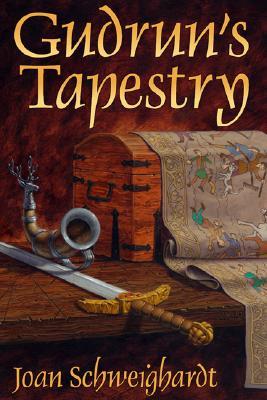"Whether readers are hungry for historical fiction or not, this book will satisfy. They enter a world of suspenseful truth based on the brutality of one of history’s monsters – Attila the Hun. The author weaves a first-person account with interesting characters, and then added a twist of magic and an intriguing and powerful mood. An easy pleasure with excitement to be remembered. " - Christina, Goodreads
Two threads are flawlessly woven together in this sweeping historical novel. In one, Gudrun, a Burgundian noblewoman, dares to enter the City of Attila to give its ruler what she hopes is a cursed sword; the second reveals the unimaginable events that have driven her to this mission. Based in part on the true history of the times and in part on the same Nordic legends that inspired Wagner’s Ring Cycle and other great works of art, The Last Wife of Attila the Hun offers readers a thrilling story of love, betrayal, passion and revenge, all set against an ancient backdrop itself gushing with intrigue.
DISCOVER THIS AUTHOR:
Describe your book
The Last Wife of Attila the Hun weaves together two story threads: In one, Gudrun, a Burgundian noblewoman, dares to enter the City of Attila to give its ruler what she hopes is a cursed sword; the second thread reveals the unimaginable events that drove Gudrun to this mission in the first place. I call it a historical novel with a legendary component as it is based on both history and legend.
What inspired you to write it?
The Poetic Edda, which I read and studied in college, includes a collection of legends that travelled from Germanic territories to Iceland with the Vikings and were shared orally for centuries before they were finally recorded in the thirteenth century. I fell in love with some of these legends, and when I saw that they insisted on references to the historical Attila the Hun, I began to read the history of the times Attila lived in. I found places where the legends and the history intersected, and I couldn’t resist the idea of writing a book that combined the historical and legendary materials.
I had a great time researching and writing Attila. The Huns and Germanic peoples didn’t write back then, so most of the stories about Attila came from Roman historians. But, as ruler of half the known world and a man who felt his calling was to take over the other half, Attila was a hot topic among the Romans, and I came across some really juicy tidbits about his behavior, his relationships with his sons, his relationships with his various wives, his beliefs, his superstitions, and of course his battles. A lot of this information found its way into my novel. Even if a reader doesn’t care for the legendary stuff, they will walk away knowing a heck of a lot about the true historical Attila.
A few years ago Salmon Rushdie did a lot of radio interviews regarding his then-new novel, Two Years Eight Months and Twenty-eight Nights. Every interviewer I heard asked him the same question: Why did you decide to bring myth and history together in one book? Aren’t myth and history rather strange bedfellows? As I was researching my book, I found more and more places where legend and history overlapped. I actually started believing that the story I was concocting was true, that the legends had a much more solid historical foundation than historians give them credit for. I hope readers will enjoy the mix of genres too. I hope they will be intoxicated (as I am) by the legends and will find the history illuminating and will be highly entertained by the marriage of the two.
What advice would you give new authors?
A lot of young writers who start out writing short stories in the hope that they will write longer works in the future get bogged down by the idea of taking on a huge project. I would like to say to them, Why not try your hand at writing a novel based on history or legend? Maybe you have a time period that speaks to you, and you can develop it and then tell your own story on top of it, so to speak. Or maybe there is a historical character for whom you’d like to generate an extra-historical setting. Or maybe there is a myth or legend that you’d like to bring into modern times. Jane Smiley took the story of King Lear, which is of course best known as a Shakespearian play, and made it her own in her novel A Thousand Acres. What’s really interesting to me is that Shakespeare borrowed his King Lear from a Celtic legend, and the legend likely had some foundation in ancient history. Anyway, the point is, writing something based on a myth or legend or historical episode is no easier than any other kind of writing. Maybe it’s even harder! But it does provide some direction, and sometimes that is all a talented young writer needs.
About the author:
Joan Schweighardt is the author of five novels, and more on the way. In addition to her own writing projects, she writes, ghostwrites, and edits for individuals and corporations.
Author's Giveaway
a Rafflecopter giveaway






4 comments:
And another glorious cover - wonderful!
This sounds like a great book.
I really like the book cover! Also, excellent interview! Looking forward to checking out this book series!
I love the history lesson potential of this book. Always interesting!
Post a Comment